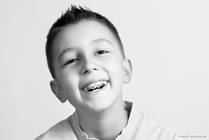Search Results
Viewing: 321-330 of 813 | All
News
10th Annual TWIG Pumpkinpalooza to Take Place at Emswiler Farms September 29th
The 10th annual TWIG Pumpkinpalooza is Saturday, Sept. 29th at Emswiler Farms in Pataskala. The event benefits Nationwide Children’s Hospital’s inpatient rehabilitation unit.
News
When the Rules of the Game are Broken: Research Studies Sports Injuries Related to Illegal Activity
A study published in the February issue of Injury Prevention estimates that more than 98,000 sports injuries in U.S. high schools in 2005-2007 were directly related to an action that was ruled illegal activity by a referee, official or disciplinary committee.Researchers in the Center for Injury

Blog
Kids and ATVs: How to Help Prevent Severe Injuries
Although there has been a decline in ATV-related injuries in recent years in the United States, children younger than 12 years make up almost half of ATV-related head and neck injuries.
News
Media Advisory: Nationwide Childrens Hospitals Full Potential Pediatric Obesity Initiative Luncheon Wednesday
MEDIA ADVISORYWHAT: Nationwide Childrens Hospitals Full Potential Pediatric Obesity InitiativeAn update to: Facts About Growing Up Healthy in Franklin County: 2008 Collaborative Childrens Health Report WHEN: Wednesday, April 1, 200912 p.m.

Blog
Early Phase Orthodontic Treatment: What Parents Need to Know
The current recommendation from the American Association of Orthodontists is that a child should be evaluated by an orthodontist either at the first recognition of an orthodontic problem or by age 7. Many children will benefit greatly from early orthodontic treatment.

Blog
Parent-Child Attachment: Hidden Opportunities in Everyday Routines
Babies need to feel nurtured and safe in order to thrive and they are able to do this best when they have a secure attachment with their parent. Opportunities to bond with babies and young children are hidden in everyday activities!
News
Nationwide Childrens Hospital Receives Palliative Care Research Grant
The American Cancer Society (ACS) and the National Palliative Care Research Center (NPCRC) has awarded $1.8 million in research grants to researchers at 12 institutions for studies aimed at reducing suffering for seriously ill patients and their family caregivers.

Blog
Lupus in the Sunlight
For kids with lupus, sunshine can mean more than summer fun, it can trigger painful flares. Discover why daily sun protection is essential and get practical tips to help your child stay safe, healthy, and active outdoors.

Blog
Therapeutic Recreation: Having Fun While Getting Well
What if recovery could include fun, laughter, and play? Therapeutic Recreation helps children heal and grow through activities they love—like sports, music, art, and nature. Discover how TR brings joy and purpose to the recovery journey.
